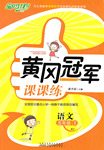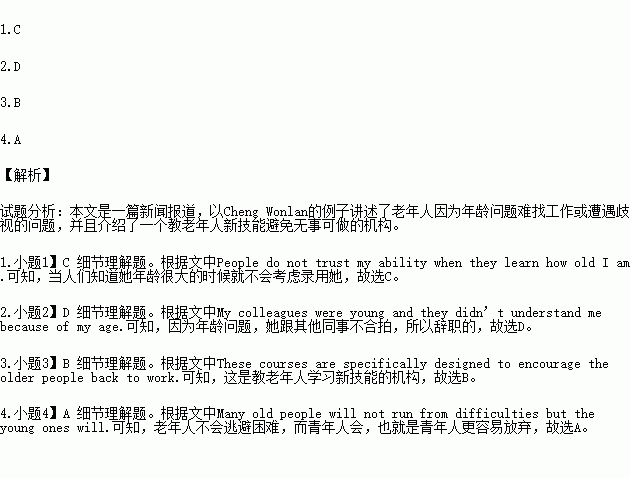题目内容
A job is more than a job, especially to the old. “It’s not the money that matters, but the sense of self-worth,” 56-year-old Cheng Wonlan said. So, every day Ms Cheng carries a bag of parcels, letters and documents and does her rounds in North Point. She’s a courier(快递员).
Five years ago, Ms Cheng was a nurse at a private clinic. She had worked there for 30 years but became jobless when the doctor moved away. It was difficult for her to find another job as a nurse. “People do not trust my ability when they learn how old I am,” she said. After two years of searching, she eventually found another nursing job. But then after two years, she quit. Why?
“My colleagues were young and they didn’t understand me because of my age. They often asked me, ‘You are so old. What are you working for?’ I was very unhappy,” she said. When the rest of her family left for work, she was lonely and bored at home. Then her neighbours told her about Employees’ Retraining Board offering retraining courses for older people. These courses are specifically designed to encourage the older people back to work.
“I was interested in courier work. I didn’t think my age was a barrier(障碍) because I was fit,” she said. Upon graduating, Ms Cheng was offered a job by a company. But then Ms Cheng was faced with a conflict: she was caught between honour and employment. “I felt embarrassed about carrying and delivering letters and parcels,” she said. It took Ms Cheng 24 hours to make up her mind: there was nothing wrong or embarrassing about doing the job. So she went off to work as a courier.
Ms Cheng’s employer, Anthony Chong, is delighted with her responsible attitude and said, “I hire older people because they are able and reliable. Age is not an important factor but attitude is. Many old people will not run from difficulties but the young ones will.”
1.Why was it difficult for Ms Cheng to find another nursing job?
A. Nursing clinics were hard to find.
B. She found it difficult to trust others.
C. People thought she was too old to work.
D. People didn’t think she had enough work experience.
2.Ms Cheng left her second nursing job because _______.
A. it was too difficult for her
B. she was bored with the job
C. her family didn’t want her to do the job
D. the other staff made her feel uncomfortable
3.Employees’ Retraining Board is an organization _________.
A. finding jobs for older people
B. teaching new skills to older people
C. training older people to make them healthier
D. providing older people with chances to earn money
4.According to Anthony Chong, young people________.
A. are more likely to give up than the older ones
B. are less experienced than the older ones
C. are fitter and stronger than the older ones
D. are able and reliable
 黄冈冠军课课练系列答案
黄冈冠军课课练系列答案
